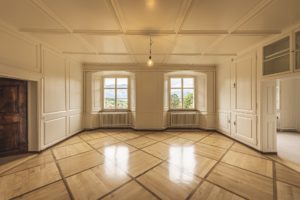During a relocation, one does not necessarily realize that there will be a lot of payments to make at the same time. So as to prevent bad surprises, you need to foresee all the costs. And you need to have sufficient funds in your bank account on the D-Day ! SOFIME Relocation helps you get a better idea of how much you will have to spend upon arrival.
→ 1st rent
Depending on when your lease starts and how the rent is calculated, you will have to pay either a full month rent, or a prorated rent. The latter will be based on the amount of days covered by the lease in the first month.
→ Deposit
For a primary residence personal lease (which is the most common lease), the deposit is 1 month rent (charges deducted) for empty apartments. On the other hand it is 2 months rent (charges deducted) for furnished apartments. If the rental lease is a company lease, or a secondary residence lease, it might be even more! (see our article about the different types of leases, as well as the one about furnished / unfurnished apartment, for better understanding).
→ Agency fees
For a primary residence personal lease, the agency fees are regulated by law. Hence it can be maximum 15 euros per sqm (incl. administrative + check-in fees). However, for company leases and secondary residence leases, there is no maximum. As a result they can rise up to 13% of the annual rent. But if you rent your apartment directly with the owner, there are no agency fees.
→ House insurance
In France, having a house insurance is mandatory. As a consequence you need to subscribe to a house insurance as soon as you have signed the lease contract. The estate agency will ask you to provide an insurance attestation on the day of the checkin in the apartment. Importantly, if you do not have it, you will not get your keys… So make sure your housing insurance is valid starting the 1st day of the lease! The insurance contribution depends on the size of the apartment, how much protection you want against risks and on the value of your belongings. Count for a small 2 room apartment around 150 euros.
→ Moving costs
If you move with your furniture, do not forget to foresee the cost of moving. From one country to another, it can be very expensive.





Commentaires récents